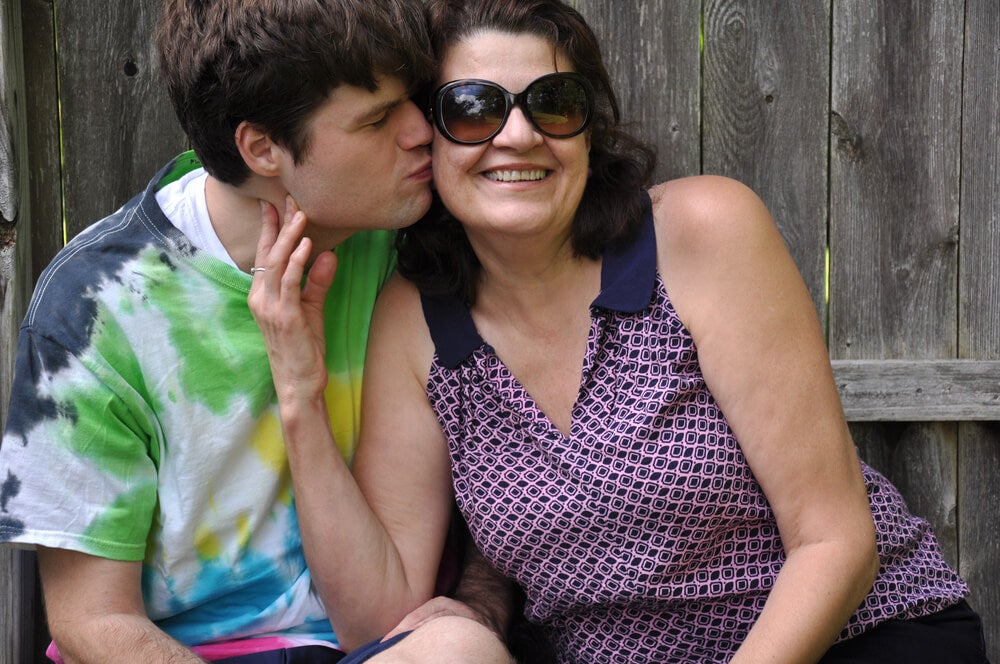More than 200 years ago, the first case of autistic children was described. Prefect (1770) described the case of an eleven-year-old boy suffering from a disorder with prolonged confusional states and delusions that sometimes alternated with periods of lethargy and anxiety.
At that time several explanations began to be presented, but there are currently several scientific researches that emphasize that the origin of autism is in the alteration of several genes.
- However.
- As we have pointed out.
- Throughout history different theories have been described.
- One of the most influential is the theory of the mind.
- Formulated in 1985 by Simon Baron-Cohen.
- Alan Leslie and Uta Frith.
- In his studies on the development of the mind.
- Social understanding in young children.
- Hypothesized that people with autism do not have a theory of mind.
- Do not have the ability to attribute independent mental states to themselves and others to predict and explain behaviors.
When a child is diagnosed with an autism spectrum disorder, the family embarks on an unexpected journey and their future becomes more uncertain. Filtering and assimilating all information and options can be devastating.
There will be many professionals, complex terminologies and a lot of information and opinions from people who will be part of your life, various emotions, such as fear, sadness, denial, guilt, anger and sadness, will seem to flood it.
“I hear you better when I’m not looking at you. Eye contact is awkward. Will people ever understand the struggle I face to do this?-Wendy Lawson-
Parents of autistic children face two new developments, that of the new child and that of a developmental disorder that is likely to surpass their understanding; this means physical and psychological stress for parents; these children’s behaviors often confuse families; lack of response, unpredictable behavior, and rejection of physical contact are among those with the greatest impact on the family.
That’s why parent workshops for autistic children are very beneficial because they help them understand the disease and how to address it, providing tools for children’s education.
Autism is a syndrome that compromises the quality of life of the patient and his family by hindering social relations and learning, making the future uncertain in terms of independence, personal care and productive life of the patient.
Parents of autistic children are forced to change various aspects of their lives due to the high demand for care of these children, hindering their full personal, family and professional development, endangering the physical and mental health of their families.
Having a person with multiple limitations, such as language and social interactions, prevents parents from having the time and money to meet their own needs. The lives of parents of autistic children revolve around them, resulting in a significant decrease in quality of life.
In the world in which we live emotions are very relevant, both on a personal level and in terms of interaction with the environment, emotional education is a necessary and very beneficial resource, although every person with autism spectrum disorder is unique and different, there are common traits in most cases, such as fear of change , lack of ability to use meaningful language, narrow interests, stereotypes, distorted sensitivity, and difficulty feeling empathy.
These common characteristics are those that are evaluated, taught, and trained in workshops for parents of autistic children. After their child’s first diagnosis, parents may be in shock. They may be confused for a while, as if they were paralyzed. Then comes denial; they don’t want to accept reality.
Sometimes they can look for other diagnoses and tend to stick to the most favorable ones, even if they are wrong, then comes the principle of acceptance and this can trigger depression, moments of great despair and sadness, in the end comes the phase of reality, in which all the above elements are overcome and parents resort to methods to help their child. They usually look for the most personalized and beneficial treatment for him. The duration of each phase can vary considerably from family to family.
Therefore, access to workshops of different associations for parents of autistic children is considered very important, the benefits are not only for parents, but also for children, the results of several studies confirm an improvement in family satisfaction and quality of life, which improves the understanding of the emotions of all its members.

